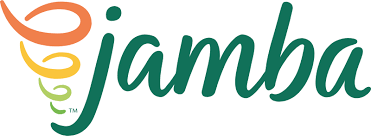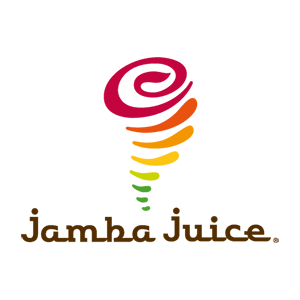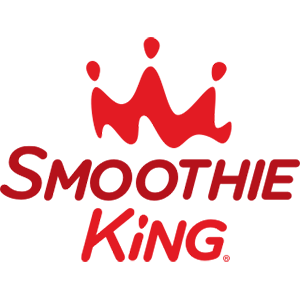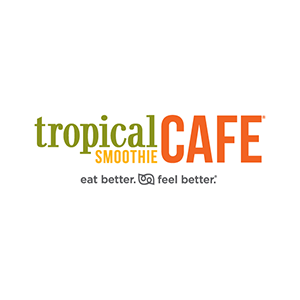Jamba Juice Franchise in 2025: Costs, Fee & FDD
Discover the potential of owning a Jamba Juice franchise! With a robust global presence, innovative health-focused menu, and flexible store formats, this franchise offers promising returns. Dive into our detailed analysis and explore if Jamba Juice is the right fit for your investment goals.
Table of Contents:
Jamba Juice, founded in 1990 by Kirk Perron in San Luis Obispo, California, started with a simple mission: to provide delicious, healthy smoothies that would fuel people’s active lifestyles. What began as a small juice shop has since evolved into a leading brand in the health-focused food and beverage industry. Jamba Juice is widely recognized for its commitment to offering nutritious and flavorful products, making it a go-to choice for those seeking a healthier alternative in the fast-casual space.
At its core, Jamba Juice offers a variety of made-to-order smoothies, juices, and bowls packed with fresh fruits and vegetables. These refreshing blends cater to health-conscious consumers who are looking for a quick and tasty way to get their daily nutrients. In addition to smoothies, Jamba Juice provides a range of healthy snacks, such as energy bowls, wraps, and baked goods, ensuring there’s something for everyone. The brand’s target market primarily includes health enthusiasts, busy professionals, and families seeking convenient and nutritious options.
With over 700 locations across the United States and internationally, Jamba Juice has become a household name. The brand operates in multiple countries, serving millions of customers each day. Its widespread presence in shopping malls, airports, and standalone locations makes it accessible to a diverse audience, and its continued expansion showcases the strength of its brand and business model.
For franchisees, Jamba Juice offers robust support and training programs designed to help new owners succeed. Franchisees, or Jamba franchise owners, benefit from a dedicated marketing team that assists in crafting effective social media campaigns to boost brand visibility and customer engagement. From initial training to ongoing marketing and operational support, franchisees can count on a comprehensive system that sets them up for success. They receive comprehensive owner training, which equips them with the necessary skills to manage their franchise effectively. The brand’s flexibility in store design and location types also allows franchisees to adapt to different markets and opportunities, making Jamba Juice an attractive option for those looking to invest in a well-established and growing brand.

Jamba Juice Franchise Insights
- Jamba Juice operates over 700 locations worldwide, with franchisees benefiting from the brand’s strong recognition and a global customer base that enjoys approximately 15 million smoothies annually.
- The franchise’s flexible footprint options—ranging from kiosks to full-sized stores—allow franchisees to tap into diverse markets, including shopping malls, airports, and university campuses.
- Jamba Juice’s menu innovation is a strong point, with new product launches like plant-based smoothies and bowls catering to growing consumer demand for vegan and gluten-free options.
Jamba Juice Franchise Key indicators
Growth YOY (%)
0%
vs industry 1%
Total U.S. Franchised Units
733
3-Year Failure Rate
17%
vs industry 11%
Sales-to-Investment ratio
1:1
How much does it cost to open a Jamba Juice franchise?
Understanding the potential investment size and capital requirements is crucial when considering opening a Jamba Juice franchise. Jamba Juice franchise cost, including initial franchise fees, equipment costs, and ongoing operational expenses, impact the feasibility and profitability of the venture. Thoroughly evaluating these factors ensures that potential franchisees are prepared for the financial responsibilities and can make informed decisions about their ability to sustain and grow the business, ultimately contributing to long-term success.
Min & Max Investment
Opening a Jamba Juice franchise involves several key costs, which are outlined in Item 7 of the Franchise Disclosure Document (FDD). You can see a breakdown of the costs to open a Jamba Juice below from the most recent Item 7 below:
| Type of Expenditure | Minimum Investment | Maximum Investment |
|---|---|---|
| Initial Franchise Fee | $35,500 | $35,500 |
| Construction and Build-Out Costs | $260,000 | $463,000 |
| Permitting | $500 | $17,500 |
| Equipment Package | $142,000 | $175,000 |
| Millwork | $11,300 | $50,500 |
| Furniture | $400 | $6,050 |
| Menu Board, Graphics, and Interior Signage | $2,100 | $10,000 |
| Exterior Signage | $6,500 | $60,300 |
| Computer System | $8,600 | $31,300 |
| Smallwares | $4,000 | $5,500 |
| TV/Music | $0 | $3,600 |
| Architect/Engineer | $6,200 | $19,000 |
| Rent | $4,000 | $10,000 |
| Grand Opening Marketing | $10,000 | $12,000 |
| Legal and Accounting Fees | $5,000 | $10,000 |
| Insurance | $1,550 | $8,100 |
| Misc. Opening Costs/Office Supplies | $9,000 | $14,000 |
| Security Deposits | $0 | $15,000 |
| Management Training Program Fee | $0 | $2,500 |
| Travel and Living Expenses during Training | $3,100 | $5,100 |
| On-Site Training Fee | $0 | $6,100 |
| Opening Inventory | $5,000 | $10,000 |
| Additional Funds – 3 Months | $15,000 | $43,000 |
| Total Initial Investment | $529,750 | $1,013,050 |
Item 7 in the Franchise Disclosure Document (FDD) is the “Estimated Initial Investment” section. It outlines the total costs a franchisee can expect to incur when starting a franchise, including the initial franchise fee, equipment, inventory, real estate, and other startup expenses. This section is crucial because it provides potential franchisees with a detailed understanding of the financial commitment required, helping them assess affordability and plan their investment strategy effectively.
Required Capital
Opening a Jamba Juice franchise requires a significant financial commitment. Below are the key capital requirements and financial estimates needed to get started:
- Initial Capital Investment The total investment required for a Jamba Juice franchise typically ranges from $530,000 to $1.01 million for traditional locations, covering construction, equipment, signage, and initial inventory. Assuming that you will finance your franchise investment, you should plan to have 20% of the total investment amount in the form of equity (cash) for the investment.
- Liquid Assets Requirement To ensure adequate cash flow and cover startup costs, franchisees are generally expected to have liquid assets in the range of $120,000 to $350,000. This ensures you can handle unexpected expenses and maintain smooth operations during the early stages.
- Net Worth Requirement Franchisees should have a net worth between $300,000 and $500,000. This demonstrates financial stability and provides reassurance to both franchisors and lenders that you can sustain the business in the long term.
How much does a Jamba Juice franchise owner make?
Calculating the salary of a Jamba Juice franchise owner involves analyzing gross sales to determine total revenue, assessing operational efficiency to understand profit margins, and accounting for franchisor fees and additional expenses such as rent, utilities, and payroll. Effective management of these factors can significantly impact the profitability and financial success of a Jamba Juice franchise owner. This comprehensive financial analysis helps estimate net profits, from which the owner’s salary can be derived. A clear understanding of these factors ensures accurate salary projections and financial planning for sustainable business operations.
Jamba Juice Revenue & Gross Sales
Jamba Juice’s recent revenue performance showcases its strong market presence, with median gross sales reaching just under $670,000. This figure reflects the franchise’s ability to attract a steady customer base, driven by its focus on health-conscious offerings. For franchisees, this performance metric highlights the brand’s potential for consistent revenue generation, positioning Jamba Juice as a competitive player in the fast-casual health and wellness sector.
Which key factors impact the average revenue performance of Jamba Juice franchisees?
The strong performance of U.S. franchisee median gross sales for Jamba Juice can likely be attributed to several key factors. First, the brand’s focus on health and wellness has aligned well with growing consumer trends toward healthier eating habits, driving consistent demand for its smoothies, juices, and bowls. Additionally, Jamba Juice’s strategic location choices, often in high-traffic areas like shopping centers and airports, contribute to a steady customer flow. The franchise’s ability to innovate with new menu items, such as plant-based options, keeps it relevant in a competitive market. Lastly, robust franchisee support and training programs ensure operational efficiency, which directly impacts sales performance.
Jamba Juice Franchise Operational Costs
When considering opening a Jamba Juice franchise, it’s essential to be aware of the key ongoing operational costs that will impact your profitability. These expenses are crucial to maintaining daily operations and delivering the quality that customers expect from the brand.
- Labor Costs Staffing is one of the largest ongoing expenses, including wages, benefits, and payroll taxes for your employees.
- Inventory and Supplies Regular restocking of fresh ingredients, packaging, and other supplies is necessary to keep up with customer demand and maintain product quality.
- Utilities Costs for electricity, water, and gas can add up, especially given the equipment required for blending and refrigeration.
- Maintenance and Repairs Routine maintenance of equipment, as well as repairs, ensures your operations run smoothly and efficiently.
Understanding these operational costs is vital to managing your budget and ensuring the long-term success of your Jamba Juice franchise.
Jamba Juice Franchise Fees
When opening a Jamba Juice franchise, it’s important to understand the key ongoing fees that will affect your bottom line. These fees are vital to maintaining brand standards and ensuring consistent marketing and operational support from the franchisor.
- Royalty Fee You will be required to pay 6% of your net sales weekly. This fee supports the ongoing development of the brand, including access to Jamba Juice’s proven business model, operational expertise, and continuous franchisee support.
- Advertising Contribution Currently set at 3% of net sales, this fee funds national and regional advertising efforts to promote the Jamba Juice brand. The contribution may be adjusted, but combined with local marketing obligations, it won’t exceed 5% of your net sales, ensuring your business remains visible to potential customers.
- Additional Fees There are additional fees for training programs, technology, and other items provided by Jamba Juice that may be applied.
Understanding these fees is essential for financial planning and ensuring that your Jamba Juice franchise operates efficiently while benefiting from the brand’s strong market presence.
Jamba Juice Franchise Earnings
The earnings potential for a Jamba Juice franchise owner can be quite promising, though it varies based on several factors including location, sales performance, and management efficiency. With median gross sales of roughly $670,000, franchise owners who are actively involved in day-to-day operations can expect estimated earnings of approximately $100,000. This translates to an operating profit margin (EBITDA margin) of about 15%, reflecting the profitability that could be achieved through effective management and cost control.
Hands-on involvement is crucial for maximizing earnings, as owner-operators are typically better positioned to optimize operations and reduce expenses. The profitability potential underscores the advantages of direct engagement in running the franchise, making Jamba Juice an attractive option for those who are ready to invest time and effort into their business.
How to Open a Jamba Juice Franchise
Becoming a franchisee involves a series of steps to ensure a good fit between you and the franchisor, culminating in the successful launch of your franchise. Here’s an overview of the typical process:
- Initial Inquiry You or your franchise specialist submits an initial inquiry basic information about your interest and background. You should also conduct thorough research on the franchise, including seeing all of the information available on the Vetted Biz franchise intelligence platform, including access to the most recent Franchise Disclosure Document (FDD).
- Application and Evaluation Submit a detailed franchise application, including your financial information and business experience. The franchisor will review your application to assess your suitability and financial capability.
- Interviews and Discovery Day Participate in interviews with the franchisor and attend a Discovery Day, where you’ll meet the team, tour existing locations, and get a deeper understanding of the business.
- Final Approval and Agreement If both parties agree, you’ll sign the franchise agreement and pay the initial franchise fee. This contract outlines your rights and responsibilities as a franchisee.
- Training and Setup Complete the franchisor’s training program, which covers operational procedures, marketing, and customer service. Concurrently, start setting up your location, including lease agreements, store design, and equipment procurement. Benefit from real estate selection assistance provided by Jamba Juice to ensure your franchise is positioned in an optimal location for success.
- Grand Opening Launch your franchise with the support of the franchisor’s marketing team and follow their guidelines for a successful opening. This phase includes staff training, promotional events, and ensuring all operational aspects are in place.
Pros & Cons
Pros
Strong Brand Recognition: Jamba Juice is well-established with a strong market presence, which can attract a steady flow of customers and reduce the effort required to build brand awareness.
Health-Focused Menu: The brand’s emphasis on fresh, healthy smoothies and bowls aligns with growing consumer trends toward healthier eating, which can drive demand and customer loyalty.
Flexible Store Formats: The franchise provides options for different store formats, allowing for adaptability based on location and market conditions.
Cons
Highly Competitive Market: The health food and smoothie sector is competitive, with many players vying for market share, which may require strong differentiation and continuous innovation.
Market Saturation Risks: In some areas, the high number of smoothie and juice bars may limit growth potential and make it challenging to secure a profitable location.
Seasonal Variability: The business may experience fluctuations in sales based on seasonal trends, such as lower sales during colder months when customers may prefer hot beverages over smoothies.



